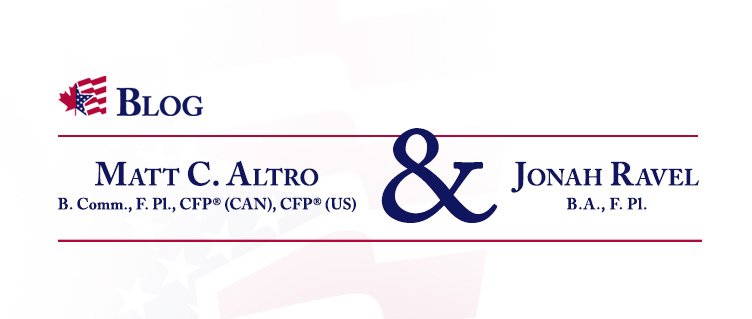In our globally connected world with the competition for foreign talent becoming ever fiercer, global mobility is on the rise. Recognizing the need to develop global leadership, many companies are sending key employees on international assignments, leading to an increase in expatriate populations all over the world.
One of the main challenges for companies with expatriate personnel is what approach to take with compensation. Many compensation-related issues beyond base salary loom across borders, such as retirement benefits, income tax management, health care and housing. If not proactively dealt with upfront, these issues can lead to costly pitfalls for employers and employees alike. They tend to come to the forefront after the pre-defined assignment terms come to an end, typically after two to five years. It is at this point that companies must decide whether the high costs of their expatriate compensation packages, which often include subsidies such as cost of living and housing allowances, are still warranted for the relocated employee in question.
A common approach that companies take to reduce the cost of their international assignments is “localization,” the process of shifting an assignee from an expatriate package to local employment terms in the host country. One approach to localization is an immediate elimination of expatriate benefits with or without a lump sum payment to mitigate the financial strain on employees and their families. Another approach is to gradually phase out the expatriate package over a pre-determined length of time. Whichever approach is taken, it is important to handle localization carefully, ideally with a policy communicated well in advance. If the process goes wrong, it can quickly frustrate and overwhelm the localized employee, who is obliged to navigate the many complexities of an unfamiliar financial landscape in a foreign jurisdiction.
The area of income tax can be particularly troublesome for newly localized expatriates, containing potential traps as well as opportunities that can be missed without prior planning.
During the initial pre-localization years of an assignment, expatriate packages may offer a Tax Equalization policy. Such a policy is intended to make employees “whole,” i.e. to make the relocation tax-neutral so that expats wind up in exactly the same position tax-wise as they would have been in their home country had they never left. Tax equalization is accomplished via a mechanism known as “hypo” (hypothetical) tax, which involves tax withholding based on an estimated hypothetical tax rate in the home country, rather than on the actual combined home and host country rate. The employee is only responsible for payment of the hypo tax, even if the actual taxes incurred are higher or lower. Tax equalization is more common when an employee relocates from a lower tax jurisdiction, like the U.S., to a higher tax jurisdiction, like Canada.
A less common approach, mostly seen with executives, is known as a Tax Protection policy. Unlike tax equalization, in which the employee is no better or worse off as a result of the relocation, tax protection ensures that expats end up in a better position by guaranteeing that they will pay the lower of hypo tax and actual tax.
Once the expatriate tax policies run their course, a localized employee shifts to the host country’s payroll and is treated the same as a local hire. Companies will often only provide tax preparation assistance to their newly localized employees which tends to be both narrow in scope and too reactive to be of full value.
Confusion may result from employees’ common belief that being localized in the foreign country triggers a tax residency change, when in fact this is not necessarily the case. Localization is one factor that may affect a taxpayer’s residency, but an actual tax residency determination can only be made via a factual analysis of the taxpayer’s ties to both countries. What’s more, without a proper understanding of the tax treaties in effect between the two countries and how to properly leverage foreign tax credits, there is a possibility that the localized employee may be subject to double taxation as both countries’ tax authorities attempt to tax the same income. This is of particular concern with American expats because the U.S. is one of the only countries in the world that taxes its citizens and permanent residents on their worldwide income even if they no longer live in the U.S.
Canadians who localize abroad also need to be aware of how to plan around departure tax, the effects of which can be mitigated with advance planning. Canadians localizing to the U.S. in particular also need specialized planning advice with the handling of their registered plans (RRSPs, TFSAs, RESPs, etc.). Since the U.S. does not recognize the tax-free nature of Canadian tax-sheltered investments, significant headaches with the Internal Revenue Service can result come tax time. Retirement planning is also crucial, as retirement plans do not cross borders with the employee, so the question of what to do with their plans is of paramount importance. Canadians relocating to the U.S. may also need to revisit their estate plans, as their worldwide assets could get caught in the net of U.S. estate tax upon death if planning is not carried out beforehand.
While localization can be an attractive means of reducing expatriate costs for a company, it is important that the employer proactively take into account the impact of localization on the employee’s entire financial picture. If mistakes are made and localization is improperly handled, attrition can occur—localized employees may no longer find themselves loyal and may instead decide to bring their valuable international experience to a new employer in the host country. Having a comprehensive cross border financial plan in place in advance for the relocated employee can be an effective means of addressing the challenges of localizing expats, thus providing a smoother localization experience for employers and employees alike.

